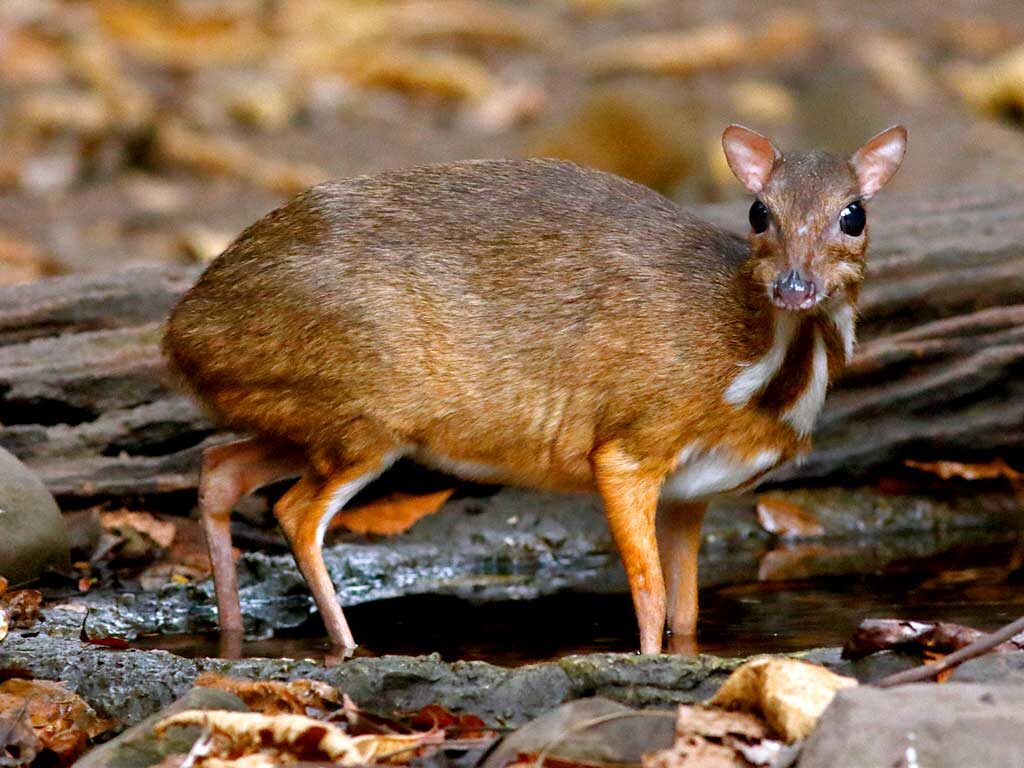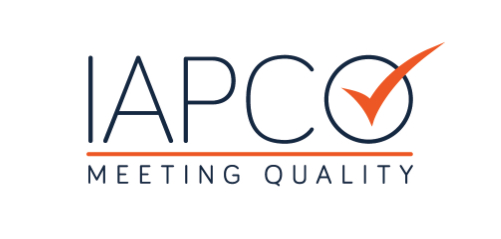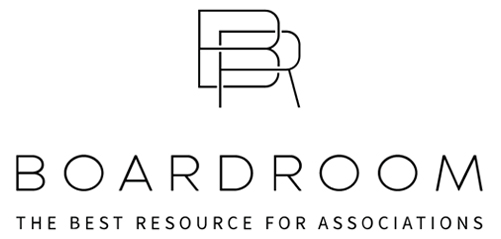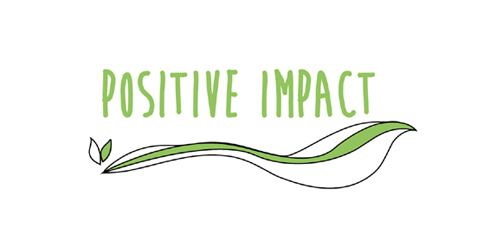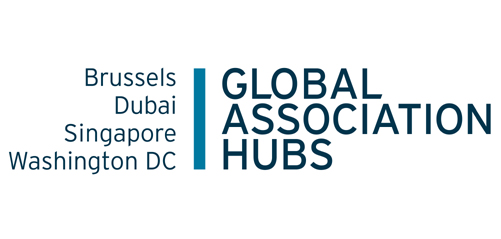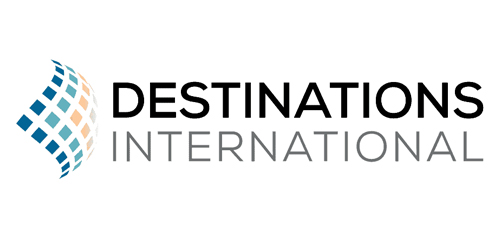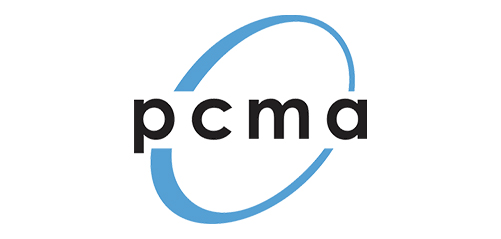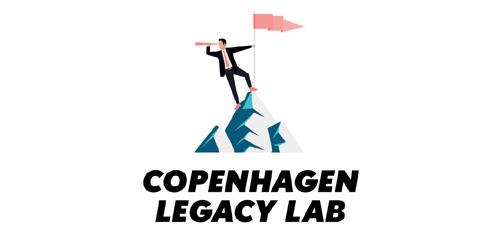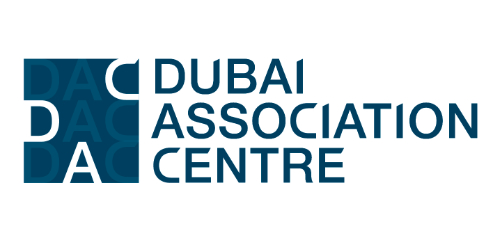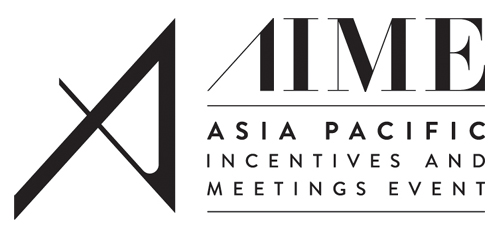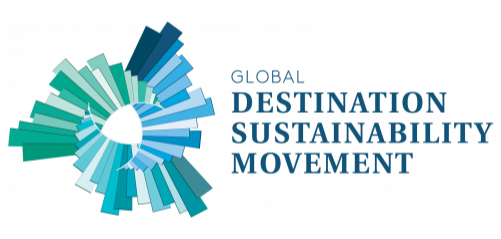“MICE” is a term long-associated with the meetings sector. But now the small and wily mouse-deer of Malaysian folklore has become a metaphor for how Business Events Sarawak has crossed the river after the pandemic and resumed business events activities through its Legacy Impact Initiative. Photo: Dave Curtis. By Jane Vong Holmes, Senior Manager Asia, GainingEdge.
In Malaysian folklore the mouse deer, usually known by its moniker Sang Kancil, is a clever, strategic animal. Although pint-sized, it still managed to get a crocodile to let it ride on its back and cross a raging river safely with no wet hooves or missing limbs.
As the meetings industry struggles with the COVID-19 pandemic with no clear light at the end of the tunnel, destinations are leaping into action with various recovery and rebound tactics. Sarawak, usually known for its adventure tourism and regarded as a “second-tier” convention destination, nonetheless has already crossed the river with its eyes focused on the goal posts, to create more value for convention organisers and for Sarawak’s communities through its Legacy Impact Initiative.
A backwater to some, Malaysia’s largest state has come from nowhere to be among Asia’s leaders in redefining the convention industry. Sarawak is offering “true value” over just “value for money”, or put another way, a Return on Objectives (ROO) instead of the accountant’s tired old Return on Investment (ROI). And one reason it is setting the pace is that it was doing this before COVID.
It all began with hosting the International Congress and Convention Association (ICCA) annual congress in 2016. “That was the game changer,” says Business Events Sarawak (BESarawak) CEO Amelia Roziman who I met at the recent TrIbe Assembly in Kuching along with Mr Hii Chang Kee, the Permanent Secretary of Sarawak’s Tourism, Creative Industry and Performing Arts Ministry.
Amelia explains: “To be able to put up a convincing business case that the outcomes from ICCA Congress 2016 have acted as catalysts for long-term legacies for Sarawak, we studied the “before” and “after” scenarios. This case study shows that legacy impacts are not just wishful thinking and will help organisers look at hosting conventions through a wider lens. Too often we look for immediate outcomes, but do not spend time observing and recording the spill-over effects of hosting conventions. From our case study, we have no doubt that legacy impacts from conventions are the New Currency.”.
Hii, a champion of legacy impact admits: “It can take time to convince some people. They have to think beyond the conference, beyond the event. One great thing about pioneering this is that it’s a positive learning experience for us as a destination. We are the first in Malaysia to place Legacy Impact at the heart of business events.”.
Five years ago, to many of ICCA’s 1,000 or so global members, the state capital was a faraway place of which they knew little. Business Events Sarawak (then known as Sarawak Convention Bureau) leveraged on this, leading to a multiple award-winning promotional video “Recharge in a New World” and ICCA Best Marketing Award in 2008.
Those who had heard of it had only done so because of its orangutans and Rainforest Music Festival. But the ICCA 2016 congress raised the bar and became the new gold standard for Sarawak’s meetings community. Indeed, Sarawak would play host again as the ICCA Asia Pacific Regional Hub in 2020 , albeit virtually, making Kuching the only city to have the honour of hosting a ICCA Congress twice in five years. Even more, the Congress was put under a microscope. How had hosting ICCA impacted Sarawak’s future?
The results, post convention and longer-term, were clear as the retrospective study showed.
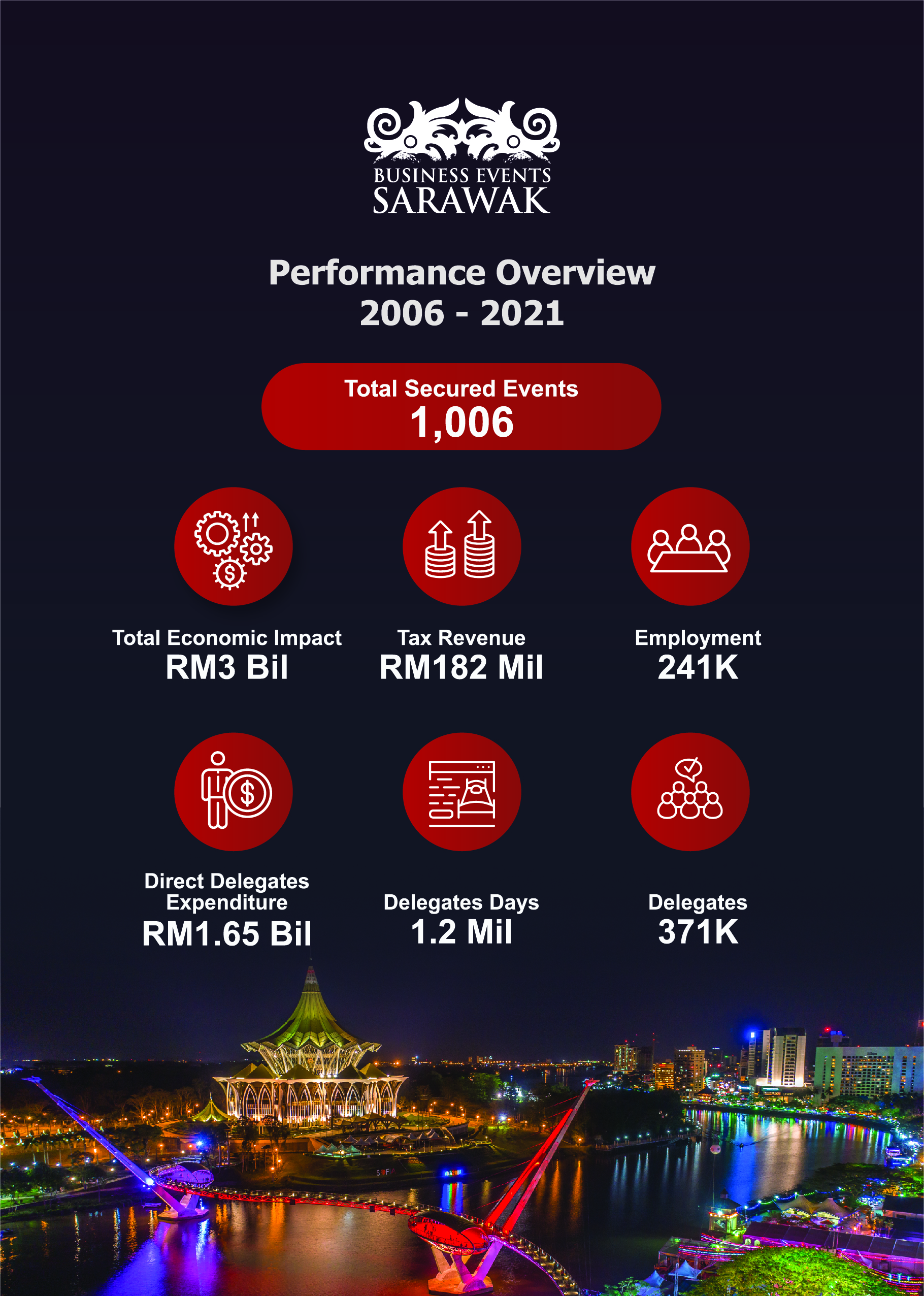
BESarawak celebrated its 15th anniversary with this overview of its performance.
So, overnight it emerged as a convention destination punching well above its weight, and both state and country benefitted from the extra clout. The Sarawak Government gave its enthusiastic backing to convention hubs in Miri and Sibu as well as Kuching, while Malaysia’s already high reputation in the industry rose even further. Both delegates and organisers discovered that there were other networks to explore in Sarawak besides the Mulu Caves.
Minister of Tourism, Creative Industry and Performing Arts Sarawak, Dato Sri Abdul Karim Rahman Hamzah firmly believes that the value of business events is more than meets the eye. In 2016, the Ministry started to advocate legacy impacts from business events via a campaign called Sarawak 2030 (implemented in 2016-2020) to educate on the benefits of business events which go beyond tourism ROI.
Amelia acknowledges: “We studied other mature convention destinations, talked to various experts and did a big survey with two local universities in 2019. We decided to differentiate Sarawak from others by using Legacy Impact. We wanted to rebrand ourselves and look at value that is more than economic. Then came COVID. I was devastated at first, but then realised it was an opportunity.”.
Hii elaborates: “Our Legacy Impact Initiative is aligned with the Sarawak Economic Action Council’s placement of business events which will contribute to all seven enablers and six economic sectors. In fact, we combined these to form Sarawak’s thirteen Key Priority Areas (KPA) and we are now focused on bringing business events in these areas. These thirteen KPAs will allow us to collaborate with relevant government agencies and ministries while strengthening their respective sectors. In short, legacy impact is Sarawak’s strategic approach to become an advanced destination by 2030.”.
The BESarawak Alliance (BESA), a platform dedicated to improving collaboration and relationships among BESarawak, the public and private sectors in order to further strengthen Sarawak’s position in bidding for regional and international business events, was launched. Besides being recognised as a serious industry player, BESarawak is now able to concentrate on sales and bidding to capitalize on its success instead of marketing and branding. Its long-term strategy had paid off handsomely, while contributing to the achievement of the United Nations Sustainable Development Goals (UNSDGs).
Gary Grimmer, Executive Chairman of GainingEdge, who has been involved in BESarawak’s legacy initiatives adds: “There are four key transformative trends that are emerging that have been driven by the pandemic. All four relate directly to the growing focus on convention legacy:
- Sustainability and the United Nations Sustainable Development Goals (UNSDGs)
- Attracting conventions that are strategically important to a community
- Government engagement
- Local community support and engagement in the convention industry
In a way, legacy impact is both a means and an end. This is because being strategic and visionary about convention legacies can create a “confluence of interest” between meeting industries, local host committees, governments and broader communities (general public).”.
Value is still the key component but perception of value may have changed since the pandemic hit. Once it was all based on spending and easy to measure; now it is harder which makes it critical to keep the evidence of what has been achieved through regular observations and records.
On the issue of sustainability, Hii adds: “We’re proud of the recent efforts to challenge ourselves and go for the Global Sustainability Destination Index Sarawak Region. Again, we’re also the first in Malaysia to do it. The GDS-Index is a globally recognised benchmarking system that will rank Sarawak’s business events and tourism sustainability performance.”.
The Index is fully aligned with the UNSDGs and Global Sustainable Tourism Council (GSTC) Destination Criteria which is part of Sarawak’s Post COVID-19 Development Strategy (PCDS) for Tourism to make Sarawak a leading destination for ecotourism and sustainable business events by 2030.
Amelia concludes: “Within the next ten years, we want to be a destination which delivers high-purpose business events. We want to help rebuild Sarawak’s economy using business events as a platform. We want to drive purposeful meetings which will also be responsible to the community. And although we may still be defined as a “second-tier” destination, we want to be the first people think of.”
Jane Vong Holmes, Senior Manager Asia, GainingEdge
****
The Top Three Legacies from the 55th ICCA Congress 2016 Kuching
- Destination Awareness and Reputation: The Congress has earned Sarawak credit on the international stage as an emerging and capable business events player.
- Political Support and Commitment: The Sarawak government has recognised the transformative role of business events and invested in its development.
- Sarawak’s Business Events Brand: BESarawak is today promoting and branding Sarawak as the preferred business events destination with its Tribe Legacy component which is aimed at driving social and economic transformation for Sarawak communities through the ‘soft power’ of conventions.
Contact Amelia Roziman (amelia@sarawakcb.com) of Business Events Sarawak for a copy of the report “How Hosting ICCA 2016 Impacted our Future.”.
****
In Conversation
According to Minister of Tourism, Creative Industry and Performing Arts Sarawak, Dato Sri Abdul Karim Rahman Hamzah: “From 2021 onwards, the Sarawak Government is aiming to maximise the impact of business events and power of investment by harvesting convention legacies under BESarawak’s legacy impact movement.”.
What are your Ministry’s KPIs to measure the growth of Sarawak’s Business Events industry?
“Under the 12th Malaysia Plan, our KPI for 2021-2025 is to secure 640 business events with a target total economic impact of RM1.76 billion ($420 million), RM105 million ($25 million) in tax revenue and 139,746 in employment opportunities.”.
“Out of 640 events, at least 50 perrcent of conferences brought into Sarawak must be “legacy impact” conventions and within ten years, we must secure at least fifty homegrown business events.”.

